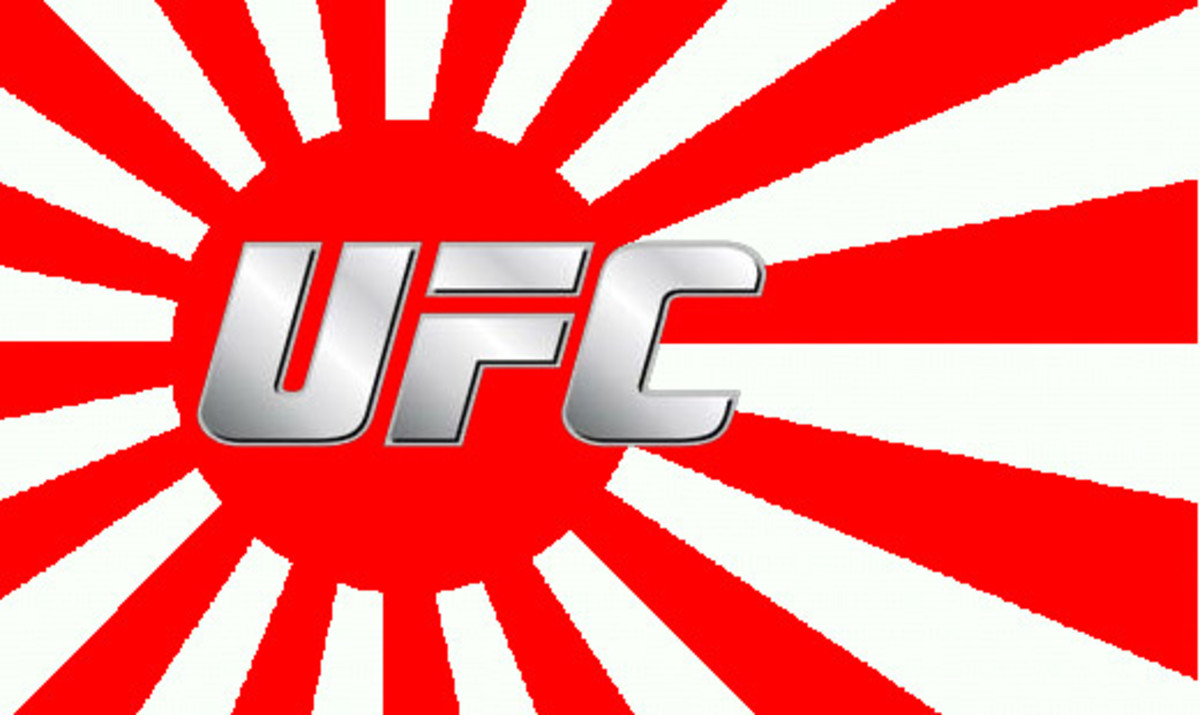TOKYO, Japan – Zuffa Asia Executive Vice President and Managing Director Mark Fischer met with the Japanese press on Monday at Yoshihiro Akiyama's Cloud Dojo to announce two new local UFC distribution deals and ambitious plans to return to Japan.
Japanese fight enthusiasts will now be able to catch UFC content on their cell phones via TV Bank or through NTT Plala's "Hikari TV" in addition to the existing UFC WOWOW private satellite TV broadcast, and if Fischer's aspirations are met, local fans will also be able to attend an event live in Japan.
"Japan is the most advanced and important market for us in Asia so far," Fischer stated. "We definitely want to hold a major event in Japan as soon as possible. I would say that we're not ready to announce anything yet but we very much hope to have [an event] later this year or early next year in Japan."
The new distribution deals are a step forward for the UFC in Japan, but the leading fight promoter is still lacking the network television contract that is essential for expansion in a country with a limited history of pay-per-view.
"Today is a very important step in both expanding the number of Japanese fighters in the UFC as well as expanding our media platforms to bring the UFC to more fans than ever before," said Fischer. "We want to make sure that any fan who wants to watch the UFC has the best access they can and, at the same time, reach new fans."
The issue with the distribution methods that the UFC now have in Japan is that consumers will need to actively seek out the content to be exposed to it. In a country that has been saturated with fight promotions over the years, a network TV deal is critical in order to bring uniqueness and awareness to the UFC brand and to set up the promotion for long-term growth. This is a problem that Fischer is aware of.
"I think we have to create some customized content, maybe more highlight, educational- type programming rather than full-length events for terrestrial media, but I do think there are some ways to work with [network television in Japan]," Fischer explained. "In the meantime, we'll expand in other areas of media. We'd certainly like to continue working with great partners like WOWOW in the pay-TV space and expand into different platforms with new media."
Fischer's comments would indicate that Zuffa has not made any significant headway into gaining ground on network TV. If that is the case, then the UFC would need to change their promotional model if they hope to grow in Japan.
With no pay-per-view market in Japan, local promotions have had to reply heavily on sponsorships, ticket sales and TV deals. When even one of these three pieces of the puzzle is missing, history has shown that the promotion suffers badly.
With network TV seemingly out of the question at the moment (Zuffa will not be interested in paying to broadcast), the emphasis will have to be on ticket sales and that would mean a venue like the 45,000 seat Saitama Super Arena. A show at a venue like that would be more than twice as large as any other UFC event in history and shows of that magnitude are something that UFC President Dana White has consistently said that he would hope to avoid.
The UFC could easily hold a profitable event under their current model in Japan. If they wish to truly grow locally: they have a long way to go and a 2011 event, or even a 2012 event would be far-fetched. Fischer, with a 15-year history of sports marketing in Asia, is aware of the issues.
"It's a step-by-step process. It doesn't happen overnight. We want to build up a good fan base, grow our media exposure, and we want fighters from different nationalities in the UFC before marketing to that nation and bringing in the big event," Fischer admits. "That big event will be more successful then, and I think that's what we're doing here in Japan."
Then there is the persistent problem of the Japanese mafia. The yakuza.
The power and influence of the yakuza is often misunderstood and over dramaticized but the UFC has already had experience in that area.
"There are fans over there who want this, but there's some shady [expletive] people over there that keep it from happening," UFC President Dana White admitted in 2009. "They know who they are, and they don't want the UFC to come to Japan, and that's a fact."
The yakuza provided the money that saw fight industry explode in the early 2000's, but were also responsible for it's downfall. Exposed Japanese mafia relations led to Pride FC losing it's TV deal and ultimately, selling out to Zuffa in 2007.
The yakuza were also responsible for Zuffa spending a reported USD$70 million on essentially nothing more than Pride FC video rights and a handful of fighter contracts.
"They're going to have to kill me. That's where they're going to have to do. We're coming there no matter what. We're coming there. We're going to break through this thing," White said in 2009. "We're going to get past these dirty, sneaky, bad guys in Japan, and we're going to make it happen. If I don't get killed over in Japan, I'll be [expletive] amazed when I go ever there. I'll be amazed."
There are many barriers to entry for the long term growth of the UFC in Japan. Zuffa has conquered everything in their path so far so it would be foolish to bet against them here. Just don't expect it to happen in the time frame that they expect.
Source: mmafighting.com


No comments:
Post a Comment